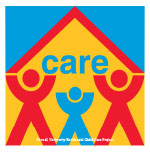PROGRAMS
GET INVOLVED
SUPPORT OUR MISSION

By Karlee Brimberry
Going back to school can be an overwhelming feeling at first. Whether a student is starting a new school, has a difficult time making friends, or doesn’t know their teacher, these can all be factors to take into consideration when a child is feeling anxious. Some children may also have social anxiety, which can play a role in a child’s reluctance to go back to school.
A typical behavior that children with social anxiety may display is defiant behavior. If your child is misbehaving, and you have noticed the same pattern occurring during social situations, that could be due to social anxiety. They may have a fear of judgment and often worry about the opinions of their peers. On the other hand, a child with social anxiety may also be very quiet and feel as if they are invisible. They may continuously watch the clock or looking at a schedule as if they are on a countdown for the social experience to be over. We call these two behaviors, “the seen versus the unseen” where the child who is misbehaving wants to be seen, and the child who wants to be invisible is the unseen. Students may also make themselves physically sick over attending a school or other social events. This can be evident if a child feels nauseous beforehand, attempts to stay home from school often, or refuses to leave the house.
Here at Hoyleton Youth and Family Services, we have an entire team of therapists who work in multiple schools within the community, to help students that are facing social anxiety. As they work with students, our therapists use elements from cognitive behavioral therapy to help students become more aware of their thought process and how those negative thoughts can drive their behavior. “We start by helping students learn to recognize their thoughts,” said Tina Kampwerth, Director of Clinical Services. Students may experience one negative event, and that may be all that they can focus on, instead of thinking about all the other positive events that happened to them.
For example, if five students come up and say “I like your shoes” but one student says “I don’t like your shoes” the student with social anxiety may only focus on the one negative comment made and then let that experience impact how they interact with their peers. There is a term called “fortune telling” where the student will use negative social situations they’ve experienced as a way of hindering them for social situations in the future based off the fear that their past experience will repeat itself. So overall, we help students to focus on their thought processes and how to be more intentional with positive thinking.
It is also crucial for parents to educate themselves about social anxiety and realize that there are many steps to be taken to help the child adequately. It may seem like an easy and quick fix to sign your child up for extracurricular activities so that they can socialize; however, that may not be the appropriate step at first. By partnering with your child’s school counselor or therapist, you and your child will be able to determine the proper steps to take.
Nurturing a child with social anxiety takes a team, so communicating with your child’s teachers, coaches, and counselors are all essential to ensure your child is receiving the support they need. If you feel your child may suffer from social anxiety, please do not hesitate to reach out to us for help at 618-688-4727.


